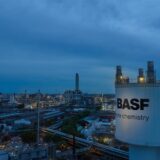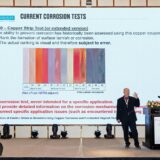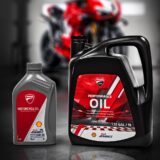
Gasoline ICE to remain dominant for 2-wheelers until 2030
Gasoline internal combustion engines (ICE) are currently the principal two-wheeler (2W) motorcycle technology with a 97% parc share. A heightened focus on sustainability and cleaner air is reshaping the motorcycle landscape. OEMs are turning to alternative propulsion technologies such as battery electric vehicles (BEV), hydrogen fuel cell electric vehicles (H2 HCEV) and hydrogen ICE technology.
Irrespective of these efforts, the 2W ICE will continue to dominate demand until 2030 and beyond, says Zheng Qin, product manager, small engines, Asia Pacific, for Lubrizol. Speaking at F+L Week 2023 on June 15, at the Four Seasons Hotel in Kuala Lumpur, Malaysia, Qin outlined several of the trends affecting the 2W market.
The Lubrizol representative noted growth in BEVs as an alternative technology with an 18% parc share in 2030. India and Indonesia are expected to lead the adoption. Flex fuel options such as ethanol offer a cleaner and ICE-compatible alternative to gasoline. Modest growth is expected with a share of 9% in 2030.
Qin highlighted the adoption of stricter emission norms that require motorcycle hardware upgrades, including three-way catalysts and port fuel injection. Adhering to Euro-5/BS VI level emission norms will have an impact on additive technology required to formulate motorcycle oils, she says. Three-way catalysts are very sensitive to phosphorus. Optimised phosphorus levels and higher phosphorus retention are important to support wear performance and catalyst durability. Once phosphate salts coat the catalyst surface the effective surface area for catalysis decreases and THC, NOx and CO emissions increase.
Qin also detailed an update to the JASO T903:2023 specification that occurred on May 8, 2023. The changes included a decrease in phosphorus limits from 0.12% mass to 0.10% mass. Evaporation loss limits are reduced from 20% to 15%. The specification also discontinues obsoleted API specification grades API SG and SH.
To improve efficiency, the focus is on improving hardware with higher power densities and by reducing internal friction. Qin stressed the need for robust low-viscosity lubricants that can withstand more severe operating conditions. It is essential dedicated motorcycle oil technology is used and to upgrade to a higher performance level, she says.
.jpg)











